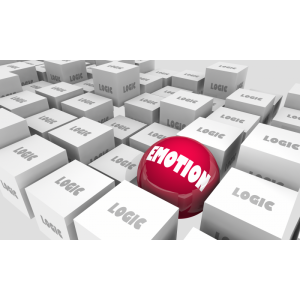
We call ourselves Homo sapiens – Latin for ‘wise man’ – with great pride, and our conversations are filled with phrases like ‘be rational’, ‘don’t be emotional’, ‘filter out the feelings’, ‘use your head not the heart’, ‘see the facts’, ‘stay logical’. Little do we know that such expressions are not only incorrect but also grossly misleading! They encourage a concentric view towards making choices or taking decisions. As per this concentric view, it is possible and desirable to block emotional inputs in the decision-making process.
And why do we prefer it to be that way? Well, because there is a strong notion in our minds that decision making should be rational and devoid of emotional entries. That’s where, we as a society, get it horribly wrong. Unless we understand that the emotions are an integral part of decision-making, and manage them effectively, we can’t make good decisions. Well, before we discuss it in some details, watch this video to get the gist of what we are discussing, why it is important, and how it is relevant in professional and personal context…
You heard it right – No choice can ever be purely rational. Emotions are ever-present part of our life – day in…day out. When we are not emotional then we aren’t entirely practical either. In our every point, every behavior, every choice, every plan, and every act, emotions always play an intervening role in a visible-invisible manner. As video discussed, the rationale behind this point is rooted in neuroscience. If we will look at our brain then we will find that conceptually, each one of us has not one but three brains. These three brains are arranged in layers, one over another.
While the lower two layers are related to survival and emotions, top layer is responsible for higher-order functions like intelligence. Now, the two lower layers are strong & reactive and they keep sending impulses towards our intelligence centers continuously. As a result, our intelligence center prefrontal cortex – which is merely 4% of our total brain volume – works with intervention of these bottom-up impulses all the time. It means that all our decisions are invariably taken at the cusp of intelligence and emotions, and that’s why, our emotional state always affects our choices.
For example, in gratitude, people donate more than they can afford to. Anger reduces the depth of analysis. In sadness, people tend to attribute life-outcomes more to situations. In a good mood, people tend to make optimistic judgments; and fearful people overestimate risks. This is not always necessarily wrong, but one should have awareness and vigilance of this, as this may affect decisions adversely. To acknowledge this, introspect, empathize, and do the needful, social & emotional intelligence is required.
This ‘emotional & social intelligence’ is a lot about one’s cognizance of the design and function of human brain, and how they affect our behaviors and choices. This coming together of neuroscience and psychology sets the base for developing emotional & social intelligence – the skill of managing self and connecting with others. Yes, it is a skill that can be learnt, practiced and mastered. However, it all begins with some important realizations like…‘No choice can ever be purely rational’.
Dr. Sandeep Atre
‘Emotional & Social Intelligence’ Expert
Founder – Socialigence
Note: Socialigence (www.socialigence.net) offers self-paced video-based online course on ‘Social & Emotional Intelligence’ with content that has relevance across the globe, and delivery specifically customized according to the work-scenarios in India.
